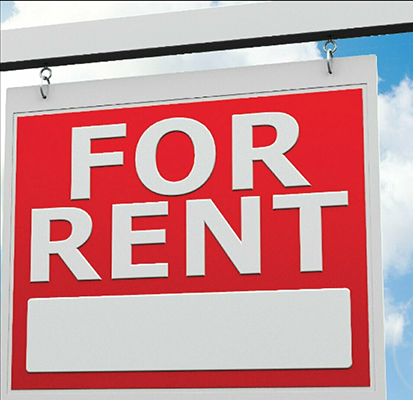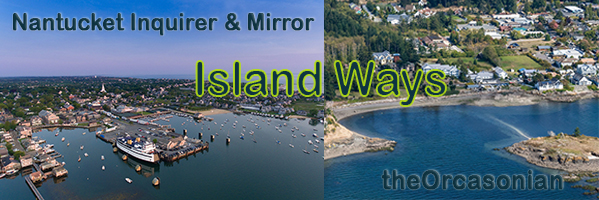||| FROM THE NANTUCKET INQUIRER & MIRROR |||
ACK•Now’s “Lease to Locals” program, which will pay property owners to rent to year-round residents instead of using their properties as short-term vacation rentals, officially went live Friday.
“I think it’s fair to say that a good number of year-round rentals were lost in the last 10 years and converted into short-term rentals, so our goal this year is to convert 20 of those back,” Julia Lindner, ACK•Now’s executive director said.

The idea behind the project, which expects to include up to 20 rental properties in the first year, is that island landlords will be able to use subsidies offered by ACK•Now to recoup the revenue normally generated by a short-term rental and instead rent locally at market rates.
The project has a pricing structure that will pay landlords up to $27,000 to offset the cost of converting their rentals.
According to the pricing structure, ACK•Now will pay a homeowner $4,500 annually, which is meant as a grant to rent a year-round room to a single tenant.
For a stand-alone unit, like a cottage or apartment, ACK•Now will pay a landlord $9,000 annually, per person, for up to three people. A studio apartment rented to a single tenant would be a $7,000 annual subsidy, Lindner said.
In order to qualify, the property must be signed for a year-round lease and rent cannot exceed $5,000 a month.
ACK•Now hopes to grant $300,000 to homeowners this year. A large portion of that has been covered by a lead gift from The McCausland Foundation, but ACK•Now is still fundraising to cover the total cost of the program, Lindner said. Billionaire Peter McCausland is a founding member of ACK•Now.
Their goal is to convert 20 smaller units this year. As of Tuesday, there were already 25 homeowners who have expressed interest, said Colin Frolich, co-founder and CEO of Placemate, the company ACK•Now has hired to run the program.
It has run similar rental- incentive programs in seven other luxury vacation communities including Vail, Colo., Sun Valley, Idaho and Lake Tahoe, Calif. The program on Nantucket is unique because it’s the first of its kind to use private donations instead of government funds, Frolich said.
“Certainly (working with private funds) allows us to move at a different speed,” he said. “So this was definitely the fastest and I’d say the most nimble approach we’ve ever taken.”
Frolich said conversations began in earnest with ACK•Now this spring and went live just months later.
“The goal is to run out of money,” Lindner said. “To make sure these incentives get into property owners’ hands and that the program is so successful that we run out of money. And then we go find some more.”
Based on experiences in other resort communities, Frolich said there is about a 50 percent retention rate. That is, about half the homeowners who receive a subsidy do it again the next year. The big caveat is that in other locations, for the most part it’s a one-time incentive that doesn’t recur the next year.
On Nantucket, ACK•Now is considering multi-year subsidies, although given this is the pilot year, it has not committed one way or another.
“We had one other market that wanted to do an ongoing subsidy in Summit County, Colo.,” Frolich said. “We only did it from year one to year two and they’re still evaluating if they want to keep doing that because it gets really expensive.”
Lindner said the longterm plans for the project include private and public partnerships, including the possibility of partnering with the town’s affordable housing programs.
“We look forward to proving that this program can be successful on Nantucket, and then finding ways of making it sustainable,” she said. “We hope that the town will partner and think that this is a good use of some of the (affordable housing) override money.”
SOURCE: NANTUCKET INQUIRER & MIRROR by agreement.
**If you are reading theOrcasonian for free, thank your fellow islanders. If you would like to support theOrcasonian CLICK HERE to set your modestly-priced, voluntary subscription. Otherwise, no worries; we’re happy to share with you.**









“We had one other market that wanted to do an ongoing subsidy in Summit County, Colo.,” Frolich said. “We only did it from year one to year two and they’re still evaluating if they want to keep doing that because it gets really expensive.”
The recent attempt by ACK.now to place some restrictions on vacation rentals has just failed at a Special Town Meeting for political reasons too complex to detail here. However, the idea of paying 1/3 of a million dollars for a single year for a single-year covenant for year-round rentals on 20 units (a tiny fraction of Nantucket’s vacation rental housing) strikes me as not much different from paying ransom for kidnap victims.
“The program on Nantucket is unique because it’s the first of its kind to use private donations instead of government funds”
Therein lies the problem – FUNDING.
I’ve read that approximately 60% of County residents currently rely on some form of assistance for basic necessities such as food and electricity. OPALCO just passed a 6% per year rate increase over the next five years. County agencies have asked for substantial levy lifts that have been rejected. Currency inflation underlies the FACT that “everything costs more” and costs must be passed on to rate payers the majority of whom are on a financial knifes edge right now and can’t afford more.
The sad truth is that we as a society can no longer afford our accustomed standard of living. As Mr. Obama said, America consumes 25% of the worlds resources and this must stop. Solution: Impoverish America with Modern Monetary Policy that provides equity by reducing everyone, but the elites, to the lowest common denominator.
70% of this County votes to support this economic course so we must acknowledge and accept that our impoverishment results from our own “democratic processes” that are so easily manipulated by identity based media spin. Alternatively if you want a better future it is essential to vote for fiscal austerity instead of pie-in-the sky promises.
In the final analysis the decision is yours.
The proposed ACK*Now rental incentive numbers are ridiculously low, especially for Nantucket rental prices. A typical airbnb makes 3 TIMES the long term lease income. With property taxes going ever higher and inflation adding costs to everything, no VR owner that relies on the income from their rental to support them can reasonably be expected to tie their investment up with a year lease. And that doesn’t even consider the very real risk of tenants not paying the rent or not moving out when the lease is up or the substantially greater wear and tear and outright damage produced by long term tenants. Unless the rental incentive to owners is a substantial percentage of the lost income, I seriously doubt there will be anyone taking them up on the offer. I certainly couldn’t afford to.
This incentive program also does nothing to change the dynamic of 2nd home VR owners who want to be able to use their property themselves or offer it to family and friends for a portion of each year.
Affordable housing is a challenging issue in every community, not just islands. Plenty of people commute to work all over the world. Commuting on the ferry rather than a freeway is still commuting. Islanders will simply have to pay the higher costs of goods and services. I see MANY off-island contractor’s vans on Orcas. The increased building costs due to more expensive contractors result in higher real estate costs, which exacerbates the affordability problem. This is not a new problem, here or anywhere else that is physically constrained, whether by water, mountains or a lack of private land. Whether it’s Jackson, WY or Sedona, AZ or Orcas Island, the increasing affordability gap between wages and real estate prices is driven by DEMAND.
So you moved someplace desirable and now you’re surprised that other people find it a desirable place too?